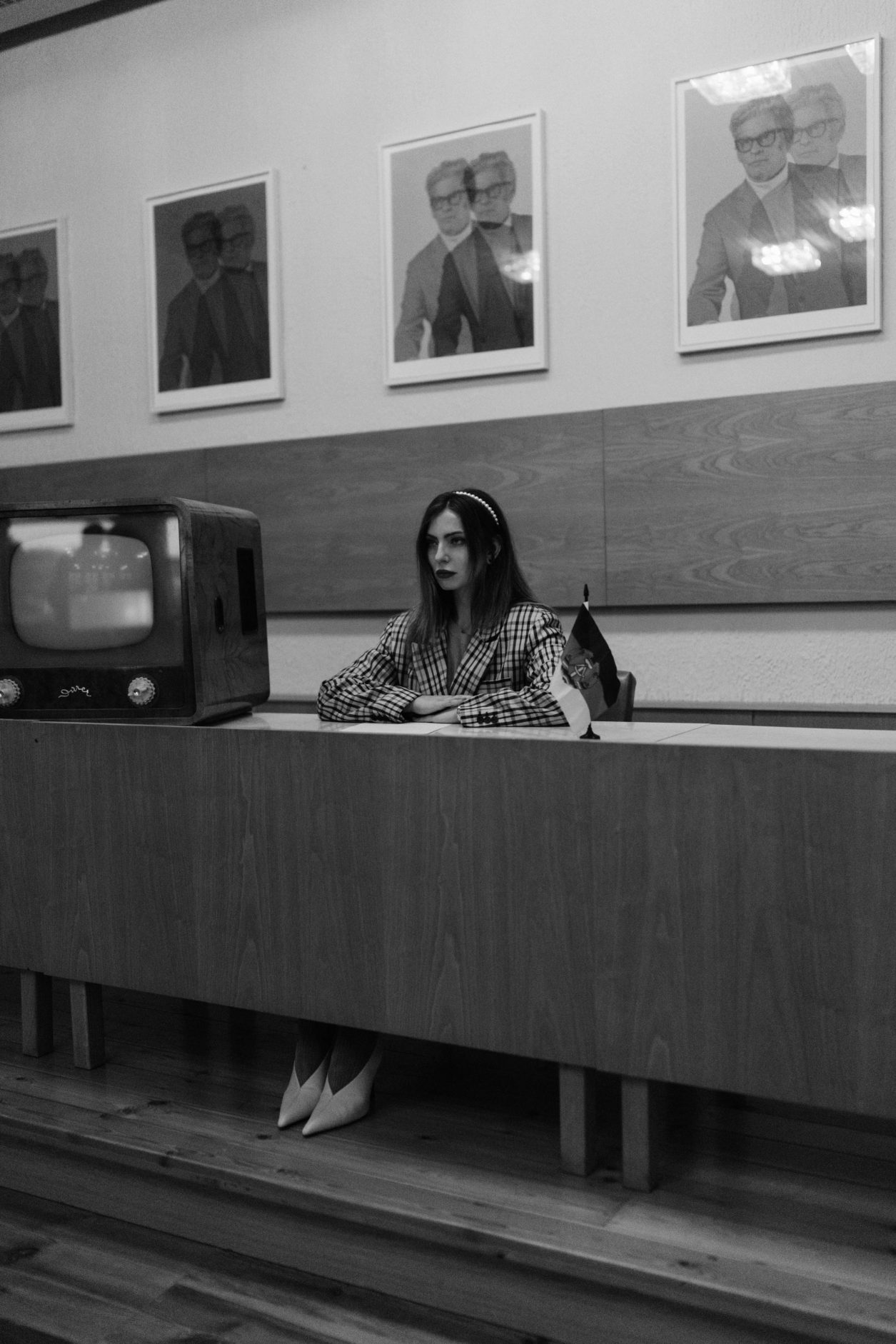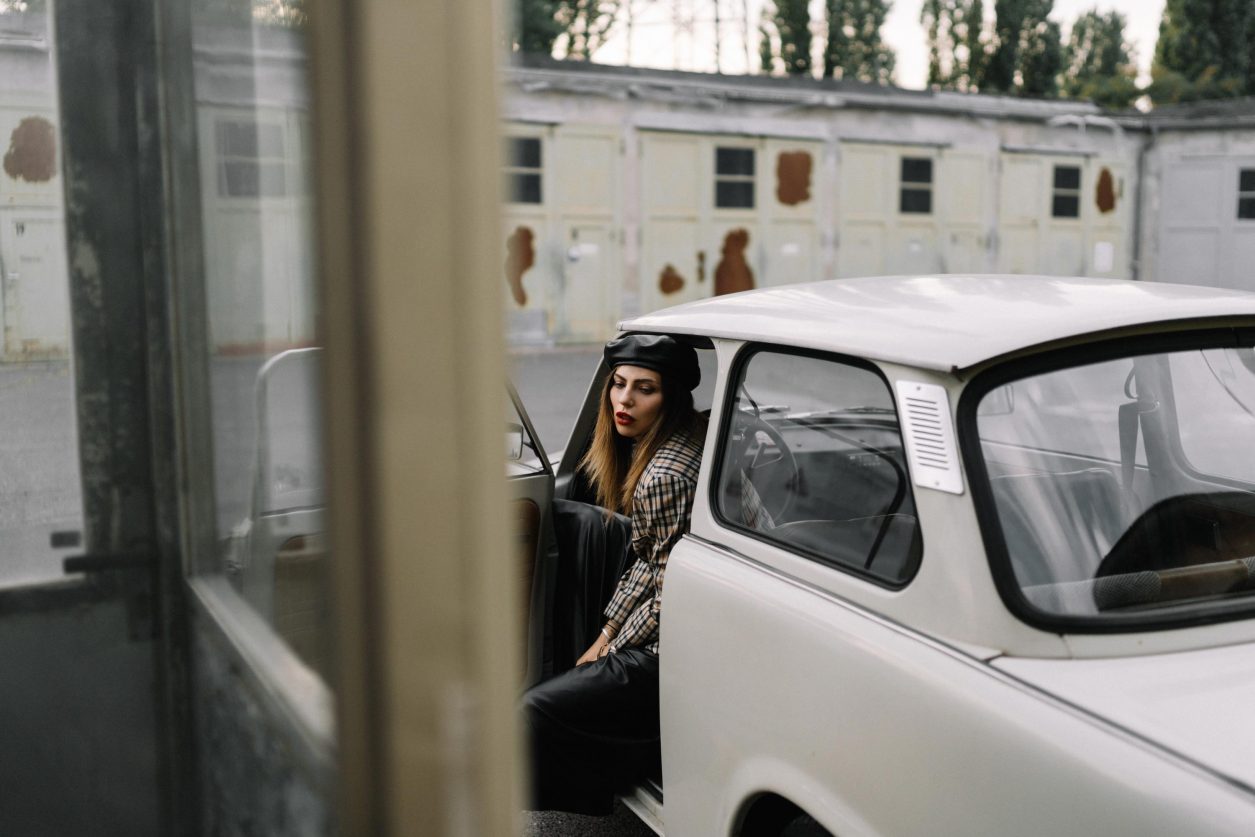1989.
It’s been 30 years since the fall of the Berlin wall, but its traces remain visible to the day.
When I arrived in Germany, the wall was already history, and it didn’t play any role in my growing up, at least not consciously. I grew up in the Ruhr Valley, in the heart of Western Germany. The rift between east and west didn’t run through the geography of my childhood. Even in school we only covered the subject rather fleetingly, so I was only to understand the greater context of it all later in life.

East and west, was there that much of a difference, really? Isn’t it all Germany, if not back in those days then certainly now?
The wall was too far away from where we lived to be a factor in our lives and thinking, and everything to do with East Germany was a region of Germany like many others. That said, I carry the contrast between East and West in me, for different reasons. My cultural identity is profoundly impacted by my early childhood in post-communist Russia. Without knowing it back then, I was much closer to Eastern Germany than I would be later in my life. I grew up with Russian food, Russian children’s programs on TV, Russian fairy tales and of course the Russian language and mentality. My own identity had two parts, one influenced by my family, and one shaped by my environment.


I imagine that many people who grew up in Eastern Block countries can relate, especially if their biographies led them to migrate to western countries, where the culture was – and is – fundamentally different, much more influenced by America. From the western vantage point, the east that shaped me so profoundly is all too often demonized, and vice versa. It was only when I arrived in Berlin that I realized how marked the differences between the east and west still are, and how alive that distinction still is. It was the first time I consciously met people from East Germany. My immediate experience was that what unites us far outweighs what may separate us. I got to know the German take on Soljanka soup, moved to East Berlin and fell in love with an East-Berliner… twice in a row.
My life was suddenly playing out in the East again.
It’s been 30 years since the wall came down, and it’s remarkable how integrated the city is today, on a physical level. It’s equally impressive how long it takes for the walls to come down in the minds of the people. The imaginary border between East and West is still very much a thing here. The wall itself stood for 28 years, so more time has elapsed without it than the entire length of its existence, and yet it doesn’t topple easily in our heads.
Every year we celebrate the Day of Germany Unity (Oct. 3, 1990), but we are still in many ways too divided as a society
The fall of the Berlin Wall is one of the most decisive moments in (German) history, a symbol for our desire for freedom and unity that seems to outweigh our impulses of isolation in the long run. The story of Berlin shows how much of an error it is to erect walls that cut through societies, and it dismantles the illusion embedded in the narrative of protection and isolationism. The wall taught us that some barriers need to be brought down rather than reinforced.

Right on time for the 30-year anniversary of the fall of the wall, David Hasselhoff teamed up with audible and has released an audiobook: “Up Against The Wall”.
Hasselhoff reminisces about those historic days with trademark irony, and playfully blends facts with fiction. The Hoff has plenty of anecdotes up his sleeve. After all, the moment of him standing on the wall singing “I’ve Been Looking for Freedom” is etched into our collective memory. In the end, who can say that his performance wasn’t an incisive spark in history, after all? It’s an entertaining, beautiful story that shines a spotlight on East- and West-Berlin of that time.


For a long time, I didn’t take David Hasselhoff seriously. A TV-actor who somehow had this one giant chart hit as well. But when I got to meet him in person, I quickly threw all my preconceptions over board, and felt actually quite ashamed to have misjudged the man in such a superficial way. I got to know David as a vibrant, interesting personality, but also as an empathic, profound human being who reflects deeply on politics and his responsibility in the world. He loves Berlin to bits, disdains borders and is very worried about his own country, where the subject of walls is sadly prevalent as maybe never before. I discussed all these things with him, and found my prejudices towards the man dissolving. Smart, highly-reflective and down to earth – this is how I’d sum David Hasselhoff up after our meeting. I feel honored to have had the chance to meet the legend in person.

The German version of the audiobook is read by William Cohn, who is a truly outstanding voice actor, well known also from Böhmermann’s Neo Magazine Royale.He too left a lasting impression, and is clearly perfectly cast for this audiobook. Huge recommendation!





It was perfect the first time. I learn so much from you as well! Keep it up great post.